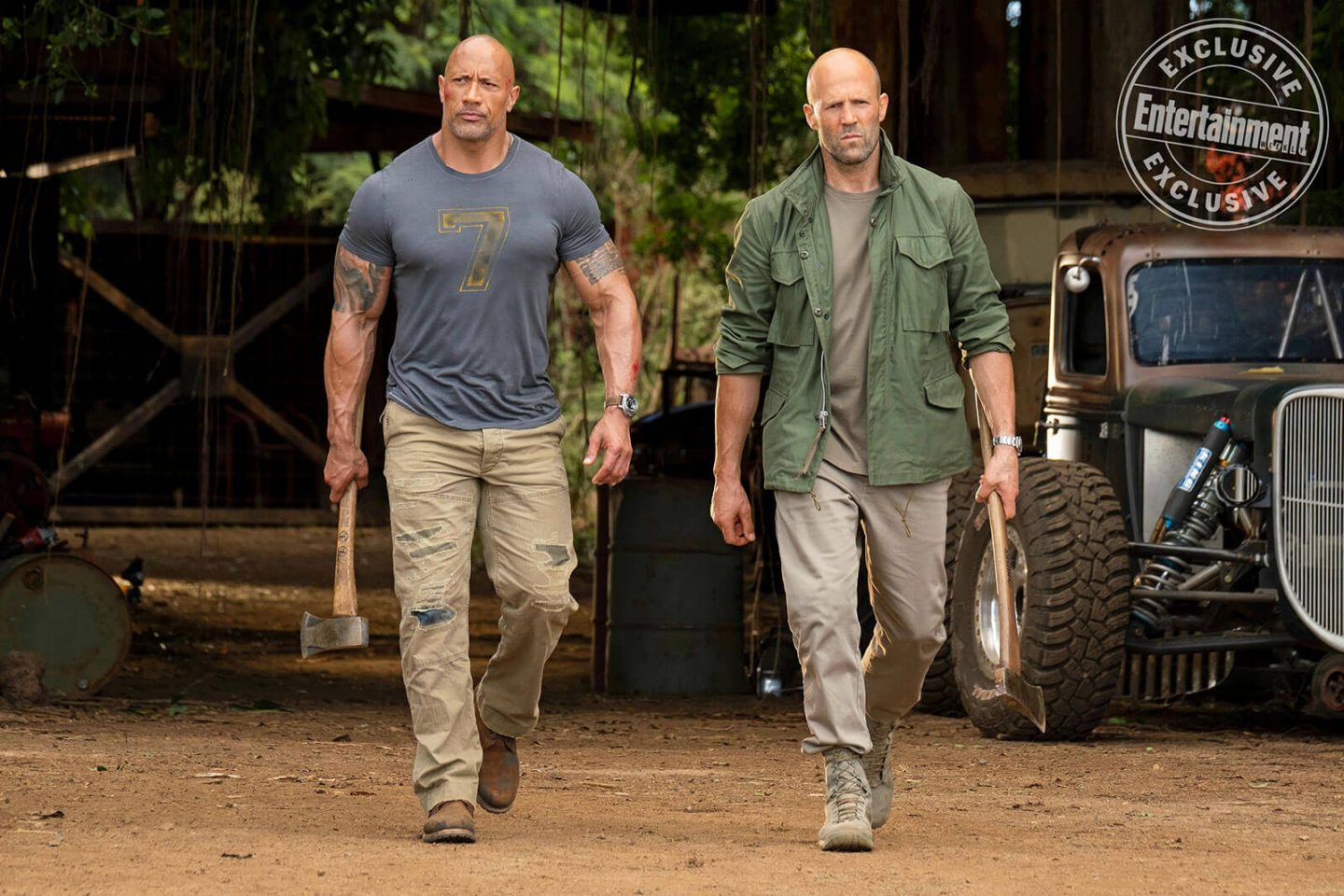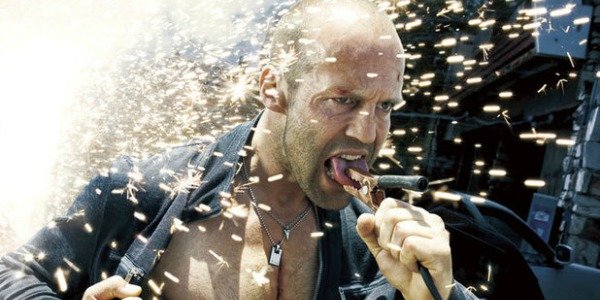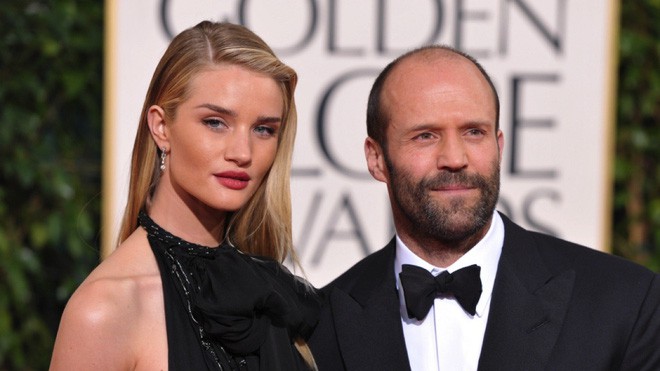What is it about Jason Statham that makes his 25-year-long career so endearing, even as he sticks to such a repeatable formula?
/cdn.vox-cdn.com/uploads/chorus_image/image/73044492/statham.0.jpg)
“I’m not used to being taken care of,” says Jason Statham—whose name in the movie is Adam Clay, but come on, it’s just Statham—early on in The Beekeeper. He’s got a point: If there’s a common denominator to the characters that the British-born actor has played over the past 25 years, it’s that they can take care of themselves. In Crank, Statham’s bruising underworld goon Chev Chelios holds his own in a universe where everybody and everything seems like it’s trying to kill him; ditto his daredevil wheelman in Death Race, who puts the pedal to the metal in a demolition derby of sociopaths. In The Meg, he even survives being swallowed whole by a massive prehistoric shark, emerging unscathed from the belly of the beast.
Fear, loneliness, and a palpable sense of physical or psychological fragility—these are not qualities found in Statham’s wheelhouse. He knows it, too, which is why the 56-year-old has never really tried to cross over from action hero status. If anything, he’s simply doubled down on his reputation, churning out one or two midrange genre exercises a year while effectively integrating himself into not one but two (very different) contemporary blockbuster franchises along the way. These glossier gigs are like victory laps around his legacy. By teaming up with Sylvester Stallone in 2010’s The Expendables, Statham paid homage to his hard-bodied ’80s predecessors, rubbing well-muscled shoulders with Arnold, Bruce, et al. His casting as a vengeful bad guy in Furious 7 was a reward for years of reliable B-movie service, complete with a crowd-pleasing turn that aligned him alongside series regulars Vin Diesel and the Rock.

To a skeptic, such choices might look like complacency, yet there’s something to be said for a man who stays true to himself. “There’s a lot of skills I’m not sure if I have,” Statham joked in 2013, at once shrugging off the versatility of his salad days—when he worked as a house painter, a coal miner, and a singer before being signed as a male model by Tommy Hilfiger—and flashing the strategic self-deprecation that figures into his best performances. It’s true enough that Statham’s never really tried to stretch himself over the years, either by taking on straight dramatic roles or by restyling himself as a romantic lead. But it’s not for a lack of chops. He had wonderful chemistry with Saffron Burrows in 2006’s underrated heist thriller The Bank Job, which also gave him plenty of relaxed comic moments. And playing a frazzled CIA lifer in Paul Feig’s Spy, Statham held his own with Melissa McCarthy and Rose Byrne, displaying a gift for wry self-spoofery. Meanwhile, the Crank films aren’t strictly comedies, but they serve as a showcase for their leading man’s slapstick sense of brutality, making him the punchline in a series of elaborate (and sadistic) visual jokes.

One thing you’ll never catch Statham doing is condescending to his material. Whether he’s laid-back or amped up, his acting is never in quotes. This commitment makes it possible to see him as a performer limited—or maybe entrapped—by his own middling taste. But there’s a difference between consistency and monotony, and based on the evidence of his best films—the Guy Ritchie diptych of Snatch and Lock, Stock and Two Smoking Barrels; the Crank films; The Bank Job; Safe; Death Race; Spy; Parker; Wild Card—Statham understands how and where to draw the line. He’s never going to play Hamlet. But give him a sturdy narrative setup and a few basic tools to build his character—a wrong that needs to be righted; a lore-heavy backstory involving special ops or bare-knuckle boxing; a decent alpha-male character name—and Statham can be as effortless as Sir Laurence Olivier. Like any master of his craft, he’s a paradox: a hard worker who makes it look easy.

Statham’s style of acting—terse, physical, more dependent on body language than dialogue—is hard to write about, but there are precedents about how to do it right. In 2008, the estimable American film critic known colloquially as Vern—a one-name byline he cultivated in the early days of Ain’t It Cool News—released a surprisingly indispensable tome titled Seagalogy that attempted to deconstruct Steven Seagal’s star persona and distill his charisma, such as it is, for posterity. At the center of Seagalogy—and “Seagalogy” as a critical philosophy—is the idea that it’s possible to string together something like a coherent worldview from the combined contents of Seagal’s movies, which are mapped in terms of recurring themes and motifs. In the hands of a less discerning critic, the idea would be nothing more than a bad-faith gimmick, but Vern, whose jocular unpretentiousness only underlines his intelligence, was after something more than taxonomy. His book suggests that, for better or worse, the erstwhile aikido master, energy drink pitchman, and Putin crony exercises a certain level of explicit or implicit authorship over his output, which means that, on some level, he’s an auteur. That isn’t the same thing as saying he’s a good artist, yet no matter how generic his movies might be, they’re also completely particular to him.

The same cannot be said of Statham, who’s never really stood in front of—or above—his work in any way or tried to cultivate any sort of larger-than-life off-screen legend. (Seagal’s attempts to convince anybody within earshot that he’s some kind of badass have rarely ended well.) Statham definitely has a favored type, however: a taciturn, reluctant virtuoso who hides his heroism in plain sight and who’d just as soon not lay waste to the world around him. The same high concept that made Crank such an exhilarating exercise in side-scrolling video game immersion—the closest a live-action movie has gotten (or ever will get) to the giddy thrill of playing Grand Theft Auto—is a skeleton key for unlocking Statham’s appeal. His character has no choice but to wreak havoc—he’s basically the human equivalent of the bus in Speed, unable to let his pulse drop below a certain level. The classic Statham hero is motivated by necessity—whether it’s a luminous toxin in his bloodstream or a gun to a family member’s head—rather than adrenaline, and his ability to hit small but affecting notes of weariness, reluctance, and ambivalence in between throwdowns goes a long way toward humanizing his characters, a trick previously perfected by no less than Harrison Ford.

As a piece of Stathamology, The Beekeeper exists toward the goofier wing nut end of the spectrum; at times, it feels like a spiritual throwback to Seagal’s late 1990s output, with similarly wacky sociological undertones. It’s generous about providing Statham with what he needs, beginning with the very contemporary and insidious injustice he’s meant to avenge: Its villains toil in the unscrupulous world of data mining, whose callow, profit-driven architects conspire in the opening scene to defraud a saintly retired schoolteacher (Phylicia Rashad) of her life savings, prompting her to commit suicide. Her death enrages Statham’s character, who’d been using the older woman’s farm to live out a mysterious, monastic existence bottling honey. The lore, meanwhile, is hysterical, involving as it does an international network of off-the-grid, licensed-to-kill agents called “beekeepers”—modern samurai deputized to circumvent CIA and FBI protocols in the name of “protecting the hive.” Finally, our beekeeper has that absolutely killer character name: “Adam Clay,” a moniker that suggests that screenwriter Kurt Wimmer—a long-tenured studio scribe with credits dating back to the ’90s—is making a desperate stab at existential profundity or else having a gigantic laugh.
The answer is probably a little bit of both, and that same slightly unhinged ambiguity gives The Beekeeper a tiny bit of sting. On the one hand, this is a movie savvy enough to evoke and exploit all kinds of right-wing media hysteria about Hunter Biden, reimagined here in the form of Josh Hutcherson as a feckless White House failson leveraging his presidential heritage against his frat-boy appetites. (Picking fights he can’t win from beneath frosted tips, he’s the most hateful millennial avatar since Jesse Eisenberg in Batman v Superman: Dawn of Justice; by the end of the movie, you’re ready to punch him out, too.) On the other hand, it’s a movie goofy enough to feature at least five groan-inducing insect-themed one-liners, each delivered with the same droning, po-faced cadence. For instance: At one point, Clay, staring down what looks like certain death, growls, “To bee or not to bee,” a line that makes Nicolas Cage’s screams in The Wicker Man seem genuinely Shakespearean (and contradicts what I said earlier about Statham never doing Hamlet). Cast as a high-priced security expert, Jeremy Irons wraps his velvety vocal cords around dialogue that could have been extracted from Out for Justice, or maybe McBain: Asked by Hutcherson’s character how much of a problem Clay will be for him and his criminal empire, he proclaims, “His face is the last thing you’re ever going to sneer at.”

It’s interesting to note that The Beekeeper is directed by David Ayer, a Hollywood journeyman who’s recently tried to style himself into a Zack Snyder–style iconoclast, advocating for the “Ayer cut” of 2016’s Suicide Squad and talking about arranging a “last rites” screening of the movie, which he claimed had its guts ripped out by its parent studio. When he’s motivated, Ayer can be a very solid genre filmmaker—he broke through as the screenwriter of Training Day and topped it with End of Watch—but he’s not exactly pushing himself here. The irony that a movie that talks about the necessity of thinking outside the system is made up almost entirely of clichés is funnier than any of the script’s ostensible in-jokes. But even when he’s working with a tuned-out director on ideologically wonky dreck, Statham brings the goods. In a recent interview with The Globe and Mail, Ayer joked that he felt bad for his star’s stuntman, given Statham’s willingness to mix it up. It’s hardly a spoiler to say that in The Beekeeper’s hilariously abrupt coda, Clay lives to fight another day, and even if there’s little franchise potential here, there’s a certain poetry in watching Statham ride (or, as the case may be, swim) off into the sunset, secure in the knowledge that he’ll be back again to take care of business—and himself—soon enough.
Adam Nayman is a film critic, teacher, and author based in Toronto; his book The Coen Brothers: This Book Really Ties the Films Together is available now from Abrams.